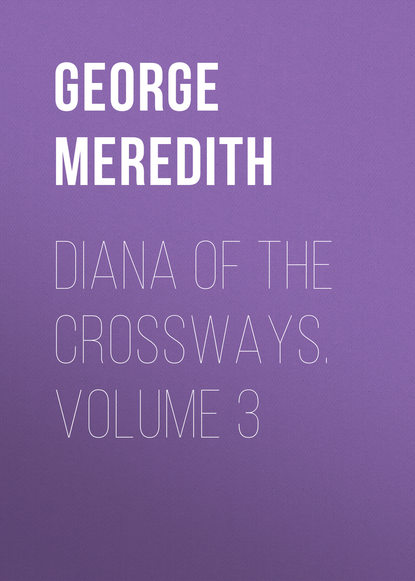По всем вопросам обращайтесь на: info@litportal.ru
(©) 2003-2024.
✖
Diana of the Crossways. Volume 3
Настройки чтения
Размер шрифта
Высота строк
Поля
'A perfect August day.'
'I held her through it. I am thankful to heaven it was no other hand than mine. She wished to spare me. She was glad of her Tony when the time came. I thought I was a coward—I could have changed with her to save her; I am a strong woman, fit to submit to that work. I should not have borne it as she did. She expected to sink under it. All her dispositions were made for death-bequests to servants and to . . . to friends: every secret liking they had, thought of!'
Diana clenched her hands.
'I hope!' Dacier said.
'You shall hear regularly. Call at Sir William's house to-morrow. He sleeps here to-night. The suspense must last for days. It is a question of vital power to bear the shock. She has a mind so like a flying spirit that, just before the moment, she made Mr. Lanyan Thomson smile by quoting some saying of her Tony's.'
'Try by-and-by to recollect it,' said Dacier.
'And you were with that poor man! How did he pass the terrible time? I pitied him.'
'He suffered; he prayed.'
'It was the best he could do. Mr. Redworth was as he always is at the trial, a pillar. Happy the friend who knows him for one! He never thinks of himself in a crisis. He is sheer strength to comfort and aid. They will drive you to the station with Mr. Thomson. He returns to relieve Sir William to-morrow. I have learnt to admire the men of the knife! No profession equals theirs in self-command and beneficence. Dr. Bridgenorth is permanent here.'
'I have a fly, and go back immediately,' said Dacier.
'She shall hear of your coming. Adieu.'
Diana gave him her hand. It was gently pressed.
A wonderment at the utter change of circumstances took Dacier passingly at the sight of her vanishing figure.
He left the house, feeling he dared have no personal wishes. It had ceased to be the lover's hypocrisy with him.
The crisis of mortal peril in that house enveloped its inmates, and so wrought in him as to enshroud the stripped outcrying husband, of whom he had no clear recollection, save of the man's agony. The two women, striving against death, devoted in friendship, were the sole living images he brought away; they were a new vision of the world and our life.
He hoped with Diana, bled with her. She rose above him high, beyond his transient human claims. He envied Redworth the common friendly right to be near her. In reflection, long after, her simplicity of speech, washed pure of the blood-emotions, for token of her great nature, during those two minutes of their sitting together, was, dearer, sweeter to the lover than if she had shown by touch or word that a faint allusion to their severance was in her mind; and this despite a certain vacancy it created.
He received formal information of Lady Dunstane's progress to convalescence. By degrees the simply official tone of Diana's letters combined with the ceasing of them and the absence of her personal charm to make a gentleman not remarkable for violence in the passion so calmly reasonable as to think the dangerous presence best avoided for a time. Subject to fits of the passion, he certainly was, but his position in the world was a counselling spouse, jealous of his good name. He did not regret his proposal to take the leap; he would not have regretted it if taken. On the safe side of the abyss, however, it wore a gruesome look to his cool blood.











